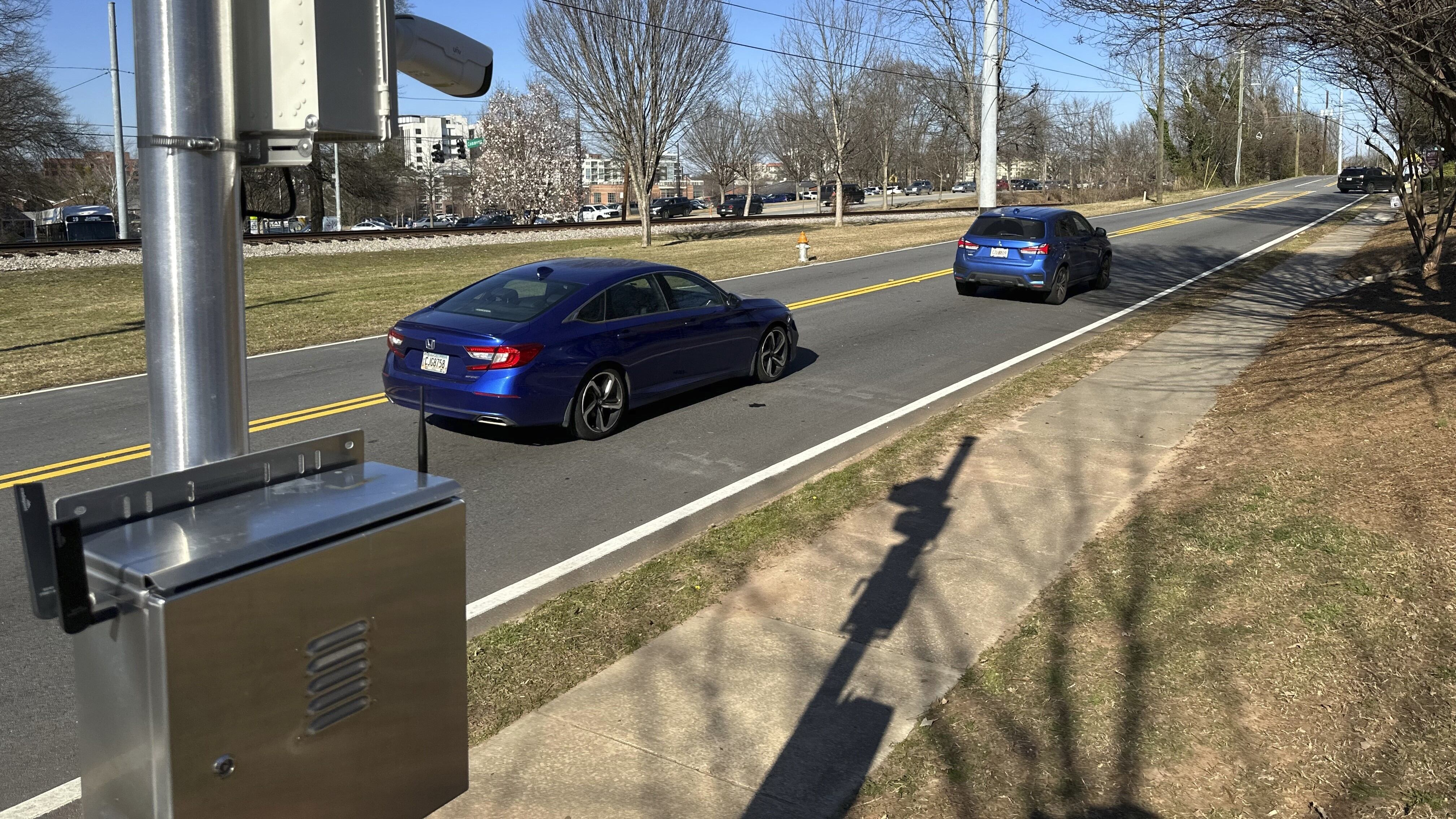Georgia Senate debating school zone speed cameras
ATLANTA, Ga. - A Georgia Senate subcommittee heard testimony Wednesday on two competing bills that could drastically alter the use of speed detection cameras in school zones, sparking debate between public safety advocates and those who argue the cameras serve as revenue traps for local governments.
House Bill 225, sponsored by state Rep. Dale Washburn (R-Macon), seeks to eliminate automated speed cameras in school zones statewide. The bill, which has already ed the House, would repeal the 2018 law authorizing the cameras.
MORE FROM NEWS 12:
Ga. lawmakers push to ban speed cameras near schools
Some state lawmakers say automated speed cameras are more about generating money than safety, and that some use them deceptively.

Ga. lawmaker targets speed-trap towns, including 7 in CSRA
A Georgia lawmaker is trying to pump the brakes on a longtime police practice that generates millions for small cities off the backs of drivers.

Butts County Sheriff Gary Long said the cameras have been exploited to generate revenue rather than enhance student safety. He shared a story about camera representatives who, years ago, asked him to consider installing cameras in his county.
“Salesmen, that’s what they were,” Long said. “They didn’t show me how many kids were hit at cross walks. They didn’t tell me how they were going to reduce things. Their exact words were, ‘Sheriff, if you let us put these cameras up in your school zones, we’ll guarantee you between $1 and $ 2 million in revenue a year you can spend on your equipment.’”
MORE FROM NEWS 12
Georgia: Latest from the state Capitol

- Are insurers ripping off Georgia’s victims of Hurricane Helene?
- ‘Honor of a lifetime’: Exiting Ga. chief justice shares thoughts
- New Georgia labor commissioner named by Gov. Brian Kemp
- As Georgia tort reform nears a vote, ers, opponents consider impacts
- Ga. DNR warns people to clean bird feeders to prevent disease
The cameras have generated more than $112 million in revenue since 2019, according to public records from 54 Georgia municipalities. “It only leads me to believe [this is] taxation through citation,” Long said.
Opponents of the measure warned eliminating speed cameras could put children at greater risk.
Norcross Police Chief Bill Grogan told senators the cameras have helped reduced speeding by about 80 percent since 2020 from about 600 violations a day, to 125. “We’ve accomplished our mission of lower speeds,” Grogan said.
Grogan s amending the current law to better warn drivers about the cameras.
Brother of Laken Riley’s killer sentenced to prison, deportation
Diego Jose Ibarra, aka “Gocho,” 29, was sentenced to serve a total of 48 months in prison after he pleaded guilty to two counts of possession of a fraudulent document on July 15, 2024.

House Bill 651, sponsored by state Rep. Alan Powell (R-Hartwell), aims to do just that. The bill proposes stricter regulations, including limiting camera enforcement to specific timeframes around school hours; mandating clearer signage that displays a driver’s speed before issuing a citation; and revising how fines are distributed.
A loophole in Georgia law allowing cities to use their police departments to pad their budgets through fines and forfeitures. A civil liberties organization says Georgia is the nation’s worst state with laws enabling the practice.
Under Powell’s bill, half of the revenue collected from fines would be earmarked for school safety initiatives, while the other half would fund law enforcement.
Ga. family questions reports about 19-year-old twin brothers found shot to death
Investigators believe Georgia incident was a murder-suicide, but family say that sounds nothing like 19-year-olds Qaadir and Naazir Lewis.
Driver privacy issues were also raised. James Dutton, vice chair of the Spalding County Commission, said camera companies collect vast amount of information about Georgia drivers and believes the data is being sold. “They get your address; they get your name; they get your tax history,” Dutton said. “The legislative intent is clearly money. It’s clearly policing for profit, except the police [aren’t] doing it.”
The subcommittee is expected to continue deliberating before sending recommendations to the full Senate for a possible vote.
Copyright 2025 WRDW/WAGT. All rights reserved.















